Discover a dynamic blend of high quality instruction and practical hands-on experience with our Social Services Professional Diploma. This program combines theoretical knowledge with hands-on skills, preparing you for a fulfilling career in social services.
Our distinctive virtual learning model engages learners with live, scheduled online classes led by expert facilitators. This approach is dedicated to providing an immersive and comprehensive educational experience, accessible to students across Canada!
Program Highlights
- Delivery: Online (Scheduled virtual classes facilitated by a live instructor)
- Duration: 50 Weeks
- Accelerated: Complete a 2 year diploma in 12 months
- Intakes: January, May, September
- Program Type: Diploma
96% Employment Rate
2023-2024
84% Graduation Rate
2023-2024
Program Details
Graduating with a Social Services Professional Diploma from Columbia College sets you on a path to a rewarding career. Upon completing this program, you will:
Be equipped with a wide range of skills necessary for effective social service work, including client assessment, intervention strategies, community resource utilization, and trauma-informed care.
Benefit from a program recognized for its high standards and comprehensive curriculum. The program’s blend of online theory instruction and in-person practicum ensures a well-rounded educational experience.
Have the skills and knowledge necessary to start your career in social services. The specialized field practicum and workshops are strategically designed to enhance your professional readiness, ensuring you are well-prepared for various roles in the field.
With a focus on inclusive and intercultural values, our program equips you with the skills to adopt a client-strength focused, confidentiality-respecting, and dignity-based approach in diverse settings. Whether in group homes, community centers, or educational institutions, you’ll be prepared to make a significant, respectful impact in your community
Program Structure
- Fast-Tracked Diploma:
- Complete a comprehensive two-year diploma in just 12 months, fast-tracking your entry into the workforce.
- The program spans 50 weeks, during which you’ll complete 20 courses. This equates to two courses every five weeks, ensuring a focused and immersive learning experience.
- Practicum:
- Gain real-world skills with a 300-hour specialized field practicum, divided over two phases in the program.
- Additional hours of in-class practicum workshops, preparing you for your career.
Supportive and Flexible Learning Environment:
- Holistic Support: Beyond academics, we provide comprehensive support including career guidance, tuition finance advice, and employment coaching.
- Flexible Options: Catering to diverse needs, our program offers both full-time and part-time options, allowing you to tailor your educational journey
Program Delivery
We offer a unique and immersive learning experience, combining expert-led virtual classes with practical in-field training. Please note that while we offer a highly interactive online learning model, the program also requires in-person participation for practicum components.
- Theory Classes (Online/Virtual Classes): Our theory classes are delivered through a synchronous and asynchronous online learning model, utilizing live instructors and independent guided learning to provide an engaging, interactive educational experience.
- Practicum (In-Person): As you are completing your theory courses, you will complete an internship in an approved social services site. This hands-on practice will allow you to apply your learning in real-world social services settings
- Class Scheduling:
- All classes follow a regular semester schedule. The online/virtual classes are designed to mirror the time frame of face-to-face classes, ensuring a comprehensive and immersive learning experience.
- During your studies, you’ll engage in various interactive learning formats, including but not limited to:
- Interactive webinars
- Discussion forums
- Group work
- Daily tests
- Professional & Academic Writing
Practicum Overview
Our practicum placements are a cornerstone of the Social Services Professional Diploma Program at Columbia College. Key components of the practicum include:
Extensive Field Experience: You are required to complete 300 hours of hands-on practicum experience, divided across two distinct periods (Semesters 1-5 and 6-10). This immersive experience is crucial for gaining practical skills and understanding the realities of the field.
Practicum Workshops: In addition to fieldwork, you will participate in 28 hours of specialized practicum workshops. These sessions are geared towards deepening your understanding of your chosen career path and refining your professional readiness.
Non-Violent Crisis Intervention Training: As part of your practicum, you will receive training in Non-Violent Crisis Intervention. This valuable skill set is essential for navigating challenging situations in the workplace effectively and safely.
Benefit from Established Relationships: Students will be allowed to explore their areas of interest through their practicum choices. You’ll be able to leverage the strong partnerships Columbia College has forged with various organizations for practicum placements. These organizations recognize and value the maturity, knowledge, and skills that our students bring to their roles.
In Alberta, salaries for Social Services Employees can reach up to $63,000 annually, as reported by the ALIS website. With specialization and experience in their specific areas, there’s potential for career advancement. Columbia’s Social Services Diploma program is delivered online and well-regarded by educational employers across Canada, it opens up a broad spectrum of employment possibilities for its graduates.
Graduates of our Social Services Professional Diploma Program find fulfilling careers across diverse settings, including public and private educational institutions, social and community service agencies, and various support centers, in roles such as:
- Social Work Assistant: Assists social workers in case management, client support, and resource coordination.
- Child and Youth Care Worker: Provides care and support to children and adolescents in various settings, focusing on their emotional, social, and physical development.
- Education Assistant: Supports teaching staff by helping with instructional duties and providing individualized support to students.
- Settlement Worker: Assists immigrants and refugees in adjusting to life in a new country, providing guidance on legal, social, and cultural issues.
- Respite Specialist Worker: Offers temporary care to provide relief for families and caregivers of individuals with disabilities or chronic illnesses.
- Community Support Worker: Works within communities to support individuals and families through social services, programs, and resources.
- Child and Family Support Worker: Provides assistance to families and children in need, offering emotional support and connecting them with relevant services.
- Disability Services Worker: Assists individuals with disabilities in various aspects of their daily lives, promoting independence and inclusion.
- Immigrant Aid Support Worker: Supports immigrants with integration services, including language training, employment assistance, and cultural acclimatization.
- Outreach Worker: Engages with vulnerable populations in the community, offering support, resources, and intervention services.
Employer Relationships
Our graduates are sought after by leading organizations, including:
- Columbia College
- Woods Homes
- Society for Treatment of Autism
- Independent Counselling Enterprise
- Boys and Girls Club of Calgary
- Foothills School Division
- Calgary Drop In Centre
- And many more esteemed institutions and centers
Admission Requirements
For entry into the Social Services Professional Diploma Program, students may qualify through Standard Admission or Mature Admission:
Prospective students who are 18 years of age and under can apply through Standard Admission, meeting the following criteria:
- Alberta high school diploma, verified by transcript, or non-Alberta equivalent,
- Minimum 60% in English 30-1 or 70% in English 30-2 or equivalent or successfully meet entry levels on Columbia’s ACCUPLACER Next-Generation assessment test.
Prospective students who are 19 years of age or older can apply through Mature Admission, meeting the following criteria:
- Have been out of high school for 1 year
- Have met academic English requirements or successfully meet entry levels on Columbia’s ACCUPLACER Next-Generation assessment test or equivalent.
Additional Requirements
- Attend Columbia College’s Social Services Professional Program Orientation prior to the start of the program.
- Admissions interview(s) to determine suitability for the profession and opportunity for success in the program.
Courses at Columbia College are taught in Canadian English. To qualify for admission, learners must demonstrate their language proficiency, typically through their high school or post-secondary transcripts, or through an academic assessment test.
Important Note: Students submitting transcripts to meet the English Language Proficiency requirements, may still be required to write Columbia’s ACCUPLACER Next-Generation assessment test after an admissions file review and formal interview with the Program Manager. See the Academic Proficiency Requirements section for further details.
The following requirements must be met prior the start of your program and/or practicum:
- Security Clearance
- Standard First Aid & CPR Training Level C
- Health and Wellness Status
See further details in the Preparing for Practicum Placements section below.
Need to upgrade your skills to meet entry requirements?
Learn more about our College Prep courses, designed to help you meet the entry levels for our programs – available at a 100% tuition discount for those who qualify!
Additional Information
English test / program | Minimum required score |
Columbia College’s College Prep English course | B or 75% |
Canadian Language Benchmarks / Milestones Test* | 8 in each strand |
IELTS Academic* | Listening – 7.5, Reading – 6.5, Writing – 7.0, Speaking – 7.0 |
TOEFL* | 83 |
Columbia College ESL820 level course | 80% and 8 in each strand |
Columbia College’s Accuplacer English Test* | SS-85, RC-80, WR-6+ |
IQAS – Formal assessment | Alberta Education English Language Arts equivalents |
Alberta Education – High School English Course | English 30-1, English 30-2 with a final mark of 60%, or equivalent |
OR: Successful completion of an Alberta Education English Language Arts course that is consistent with the specified academic admission requirements for the Career Program
OR: Successful completion of three years of full-time secondary education at a school where English was the language of instruction
OR: Transcripts demonstrating successful completion of one year of full-time post-secondary education at a school where English was the language of instruction
OR: Transcripts demonstrating successful completion of a post-secondary level English course with a minimum grade of a C (65%) or equivalent
Test/Transcript Validity
Obtaining transcripts can sometimes present challenges, and their acceptance may be influenced by various factors. It’s important to be aware that transcripts may not be approved under certain conditions, such as if they are outdated, the grades do not meet the required standards, or if its unclear how they align with our admission requirements. Please consider the following points:
- Test/Transcript results are valid for two years from the day of testing or completion of a course.
- Official results must be submitted.
- Results that expire prior to the start date of the program may not be accepted, but will still be reviewed by the Registrar’s Office for consideration.
- Students with transcripts from an international institution who are looking to apply with their transcripts are encouraged to have their education assessed through the ‘International Qualifications Assessment Service‘ (IQAS).
- For questions regarding transcripts, please contact us at transcripts@columbia.ca
Admissions Assessment Test
- For students uncertain about their transcript eligibility, you have the option to apply by taking Columbia’s ACCUPLACER Next-Generation Assessment Test.
- Opting for this route exempts you from the need to submit transcripts as part of your application, providing a streamlined admission process.
The following requirements must be met prior the start of your program and/or practicum.
- Security Clearance:
- Police Information Check
- Vulnerable Sector Search
- Child Intervention Check
- Due: Evidence of the application of the above Security Clearance Documents must be submitted prior to the start of the program
- First Aid & CPR:
- Standard First Aid and CPR Training Level C, renewed annually.
- Due: must be completed prior to starting Practicum (by the end of the first semester)
- Standard First Aid and CPR Training Level C, renewed annually.
- Health and Wellness Status:
- Due to the demanding nature of the work in the human services field and Occupational Health and Safety requirements, the social services field has a strong focus on health and wellness.
- If you have a medical condition or disability that may impact your ability to be successful in a practicum setting, you are strongly advised to discuss concerns with the Program Chair or and Accommodations Advisor as soon as possible.
- More Information: For more information on accommodations, click here.
Transferring Credits from Columbia to another Post Secondary Institution
Transfer opportunities are available at numerous degree-granting institutions throughout Alberta, across Canada, and internationally. These opportunities enable graduates to apply credits from completed courses towards a bachelor’s degree, potentially shortening the duration and cost of their further education.
Please note the following:
- The institution to which you intend to transfer has the final say on the acceptance and applicability of transfer credits.
- It’s crucial to consult with your prospective institution before initiating your studies at Columbia College to understand their policies and requirements regarding transfer credits.
Credit Transfer and Prior Learning Assessment for Social Services Program
If you’re currently working in social services or have previous relevant experience, you may qualify for credit towards certain courses in our program. This recognition is aimed at acknowledging the value of your existing skills and knowledge.
- For those with experience in a related human services field, our Prior Learning Assessment and Recognition (PLAR) process offers the opportunity to evaluate and potentially credit your practical understanding towards specific course requirements.
- For detailed guidance on applying for transfer credits and to understand the specifics of the process, please reach out to an admissions advisor today. We would be happy to answer any questions.
Education Assistant to Social Services Block Transfers
Are you an Education Assistant? Transform your experience into an accelerated path with our Social Services Professional Diploma. Eligible EA course completions, from some institutions, may qualify you for a block transfer, fast-tracking your diploma completion.
Reach out to an admissions advisor today to check your eligibility and learn more about how your EA background can swiftly lead you to new opportunities in social services.
Access to Course Information:
- All relevant details, including course outlines, schedules, and resources, will be readily available on our dedicated Moodle pages.
- Further course-specific information will be communicated by your course facilitators and the Program Chair, ensuring you are well-informed and prepared for each course.
For a full list of courses and course descriptions for this program, please click here.
Ongoing Student Support:
- Our Student Services team is committed to supporting you throughout this new phase of your program. Whether you need academic advice, administrative assistance, or personal support, our team is here to help.
- For any technology-related inquiries or challenges, our Information Systems department is ready to assist. Visit Columbia College IT Help for prompt tech support.
Plan your future with clarity with our transparent tuition and general fees structure, effective from August 1 each year. For detailed information about tuition, fees, and costs associated with the program please visit our Tuition and Fees Page.
Refund of Tuition Fees
Please refer to the Student Contract of Tuition form for details of tuition refund policy. This form and more details regarding our refund policy are available from your Admissions Advisor.
To graduate from the Social Services Diploma Program, students must successfully complete each course, earn 66 credits, and achieve a minimum overall program grade point average of 2.7.
Tutoring is available for students. If you require tutoring, please contact your Program Chair or Coordinator.
We pride ourselves on providing an innovative education that prepares students for the real world, both professionally and personally.
Integrity in Education
Since 2006, Columbia College has been at the forefront of educating skilled social services workers. Our program is grounded in diverse experience and intrinsic knowledge, ensuring students are not only well-informed but also well-prepared to secure employment in the field. This high standard of education is recognized and licensed by the Private Vocational Training Branch of the Alberta Government.
Experiential Learning
Our students benefit immensely from Columbia College’s longstanding relationships with various organizations for job placements. These organizations value the maturity, diversity, and depth of knowledge that our students bring, making our graduates highly sought after in the job market.
Focus on Employability:
We are dedicated to making our students employment-ready. Our approach includes:
- A comprehensive, hands-on practicum program, facilitating real-world experience and professional networking.
- Practical training in resume writing and interview strategies.
- Specialized workshops and a certificate in Non-Violent Crisis Intervention Training.
- The flexibility to specialize in an area of choice, enhancing job prospects and organizational fit.
Advanced Pedagogical Approaches:
Our pedagogy is as diverse as our student body. We employ a variety of engaging learning strategies:
- Interactive webinars and forums.
- Dynamic group activities and discussions.
- A range of assessments including presentations, essays, and web-based games.
- Graded assignments that challenge and develop critical thinking and practical skills.
Course Features
- Lectures 0
- Quizzes 0
- Duration 50 Weeks
- Skill level All levels
- Language Diploma
- Students 85
- Assessments Yes



